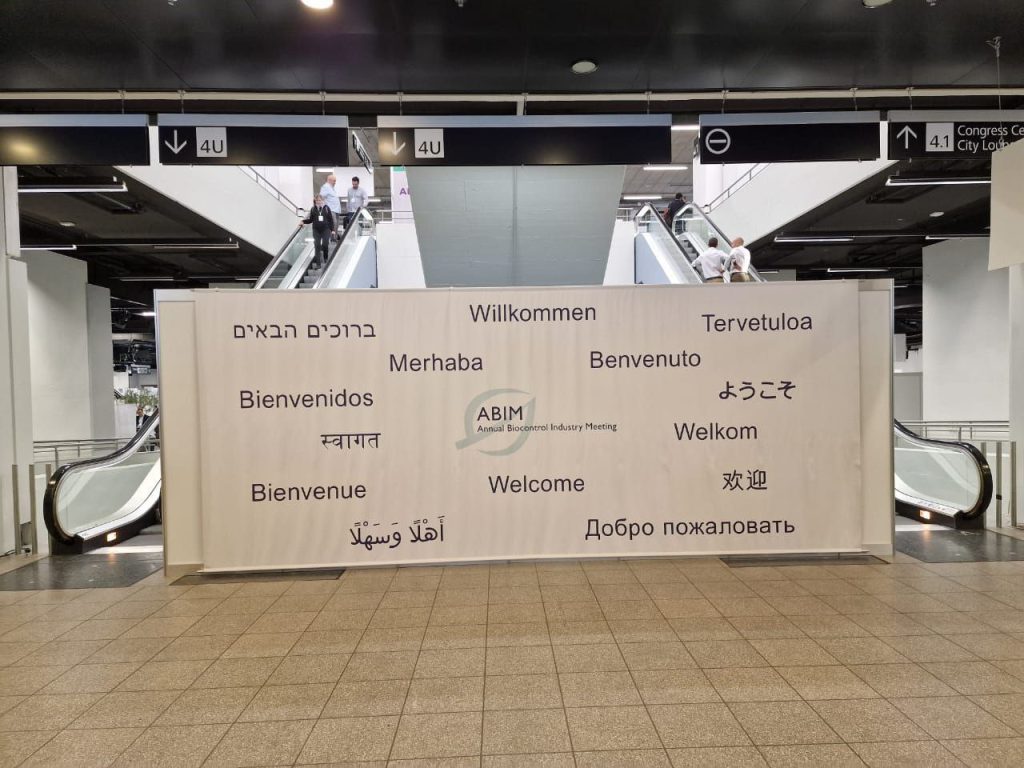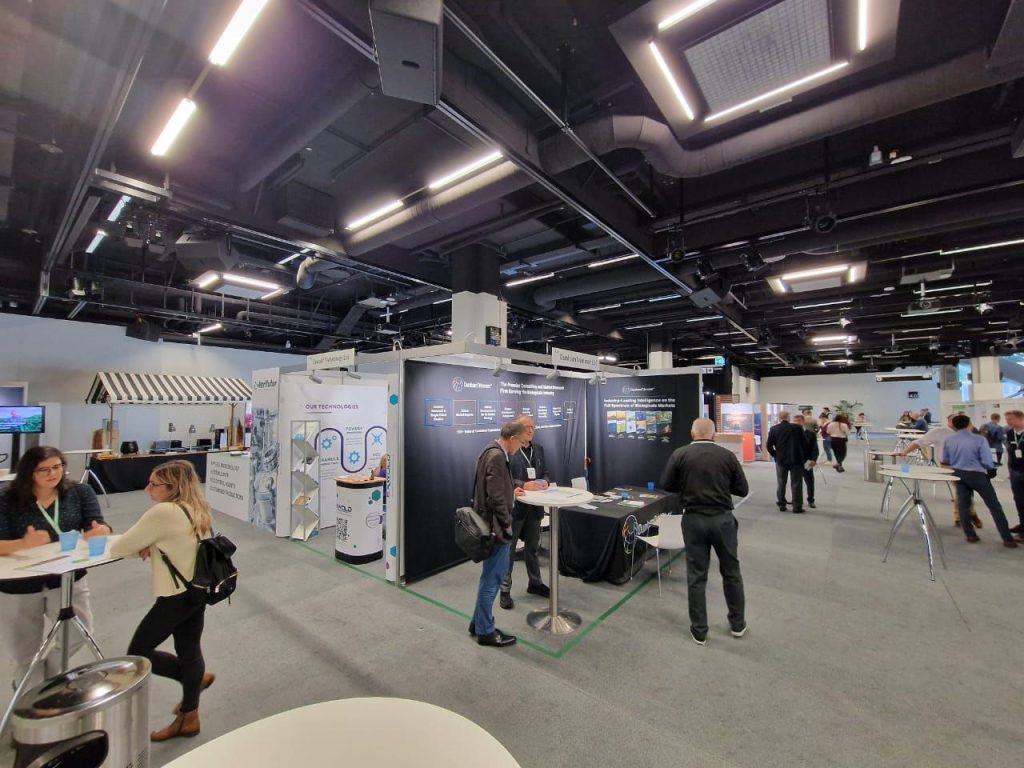By Leonardo Gotterns
Platform uniting Simbiose, Bioma, Biagro, Biograss, and Biojet combines industrial capacity, R&D expertise, and application technology targeting the global market
Brazil has created the world’s largest integrated biological inputs ecosystem, bringing together five commercial brands, four industrial units, exclusive technologies, and a dedicated research center under a single business platform. The Cogny ecosystem represents a new model for the biological crop protection sector, offering what is described as a “one-stop solution” for agriculture’s demands.
“Cogny is the largest ecosystem dedicated to agricultural microbiology in the world today. These are companies 100% focused on delivering biological solutions in inputs, application equipment, and seeds with embedded technology, plus our own Research center,” explains Luiz Felipe Fiorese, International Business Manager at Cogny. “No economic group in the world has three market-access brands operating this way.”
Inside the Ecosystem
The ecosystem’s structure sets it apart in the biological industry. At its commercial core are the Simbiose, Bioma, and Biagro brands — each serving distinct market channels and customer segments in Latin America. Together, the companies total nearly 300 registered technologies — an unparalleled differential within the Latin American bioinputs industry.
Simbiose operates with field development teams in Paraguay, while Biagro maintains more than 20 years of presence in the Argentine market. In Bolivia and Uruguay, the ecosystem employs a multi-brand strategy, using both Simbiose and Bioma according to local market conditions.
Beyond traditional distribution channels, the ecosystem includes specialized companies that address critical delivery challenges. Biojet manufactures equipment that enables the application of biological inputs in the field via planting furrow, promoting ideal temperature conditions with a differentiated nozzle self-cleaning system. The most recent addition, Biograss, is the seed brand with embedded technology, that is, a vehicle that carries the biological input to promote more biologically structured soil.

Industrial Capacity Meets Innovation Hub
The ecosystem’s industrial infrastructure represents the largest microbiological production complex in global agribusiness. Four manufacturing units — three in Brazil and one in Argentina — provide production capacity for bacteria, viruses, and fungi within a single corporate structure, a combination rarely found in the industry.
The Ecosystem has a production capacity of more than 40 million kilos/liters per year and is currently undergoing expansions that will increase this number by 50%, reaching 60 million kilos/liters per year. Additionally, it holds the world’s largest liquid fermentation industrial complex. Its built area was expanded by more than 13,000 square meters, reaching 62,000 square meters. Furthermore, it has 17 distribution centers in Brazil.
“Generally, companies focus on bacteria, or bacteria and fungi, or sometimes just viruses,” explains Fiorese. “Having all three categories in the same economic group is not something easily found in the market. This brings us significant advantages in offering complete solutions — almost a one-stop shop where our clients, whether producers, cooperatives, distributors, or B2B partners, can find all the solutions they need within our ecosystem, whether microbiology, machinery, pasture seeds, or research.”
This industrial scale emerged from the Ecosystem’s origins, which serves Brazil’s extensive annual crops sector. The demanding conditions of large-scale soybean and corn production — frequently under uncertain weather conditions — drove the development of robust formulations with extended shelf life, high stability, and no refrigeration requirements.
The Ecosystem’s research capabilities are concentrated at Orygen Research — Brazil’s largest private microbiological Research and innovation Center focused on agribusiness. The R&D process has more than 10 stages, from microorganism bioprospecting, through genetic sequencing, editing, and genetic insertion, to formulation for industrial scale and product registration.

Orygen Research has its own collection of microorganisms and achieved the NB-2 security level assigned by the National Technical Biosafety Commission (CTNBio) — a special certification for manipulations with genetically modified organisms with protection and safety at all stages of the process. For more than 15 years, this Research Center has been developing microbiological technologies for companies in the Cogny Ecosystem.
Strategic International Expansion
Cogny’s international growth strategy employs multiple approaches adapted to different market conditions. In culturally and geographically distant markets, the ecosystem uses licensing and distribution partnerships. A notable example is the distribution agreement with Corteva for the European Union market established last year.
In regions where the ecosystem has greater familiarity — including other American markets and Africa — Cogny operates with direct market presence, deploying field teams in countries where revenue volumes justify the investment, while maintaining distribution models in emerging markets.
“It’s a model with various strategies, depending very much on the viability of each country and the reality of each market we are serving,” explains Fiorese.
Financial projections are ambitious. Cogny projects exponential growth over the next three to four years, transforming exports from a minor component to a substantial portion of total business. The strategy also emphasizes building revenue streams in developed market currencies, particularly dollars and euros, as part of long-term business planning.
Presentation to Global Markets at ABIM 2025
The ecosystem will present its integrated capabilities at ABIM 2025, the world’s largest biological pest and disease control event, taking place October 20-22 in Basel, Switzerland. This marks a strategic shift in the ecosystem’s international positioning.
While Cogny representatives participated in the three previous editions of ABIM primarily under the Simbiose brand, the 2025 event will present the complete ecosystem. The change reflects market dynamics in Europe, where companies seek Latin American opportunities but face challenges with formulation requirements, agricultural suitability, and production scale.
“This year we will present ourselves as an ecosystem,” explains Fiorese. “We understand that much of the European market, especially at ABIM, is looking for opportunities in Latin America, but doesn’t know how to bring technologies with the right fit for Brazilian farmers, with adequate formulation, or often doesn’t have the necessary facilities to meet the scales we have in Brazil.”
The ecosystem positions itself both as a solution provider for European markets and as a bridge for European companies seeking entry into the Brazilian market, offering regulatory support, industrial capacity, and formulation expertise. “Since these companies are looking at the Brazilian market, they should also look at the world’s leading ecosystem as a potential partner,” adds Fiorese.
Cogny executives anticipate significant engagement at the event, particularly from European companies already establishing Brazilian operations. The biological sector is approaching a critical inflection point, with projections suggesting biological solutions will represent nearly 25% of global crop protection applications within five to seven years.
DunhamTrimmer — International Bio Intelligence Agency highlights that Brazil already moves more than US$1.5 billion in the bioinputs market. According to its estimates, it is expected to exceed US$3 billion by the end of the decade. “Brazil accounts for more than 20% of global biocontrol growth between 2021 and 2030,” states the market intelligence firm.
“The biological market is already a reality, it’s already being driven by large companies,” observes Fiorese. “The main players are investing heavily and directing portfolios toward biologicals, and many small companies are emerging.”
According to him, Cogny “is not just a manufacturer, but an innovation hub.” “We have several innovation projects where we build or develop formulations from scratch — unprecedented formulations, specific formulations for specific projects. We see ourselves as a fundamental player, highly relevant in the Brazilian market, and we will bring all this relevance to the European market as well,” concludes Fiorese, saying he awaits potential business partners at ABIM 2025.